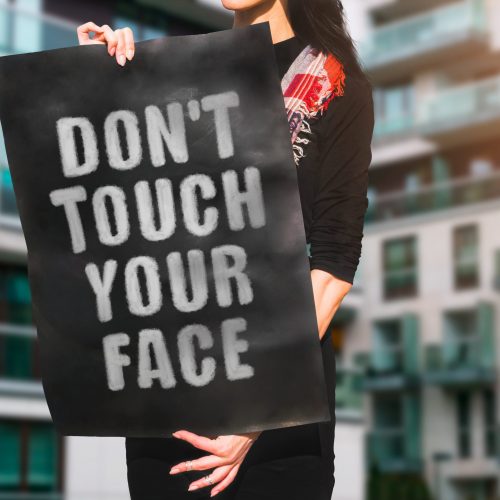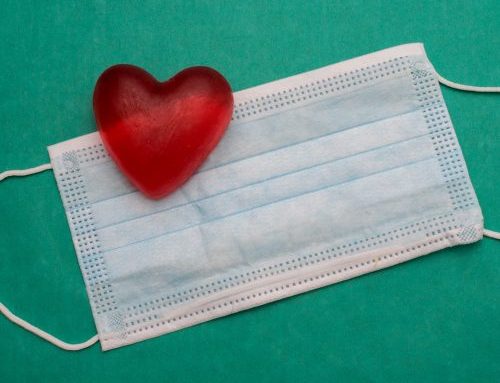Medical professionals and scientists are urging us all to slow the spread. The primary way we can do this, we have been told, is to wash our hands and not touch our face. Simple, right? NOT easy.
Why is it not easy? Biologically we are programmed to check and adjust discomfort we feel. That itch on your face? Could be a bug. Bugs could be poisonous. Get it off! Or it could be a sign of a rash or some other possible skin problem – ignore it at your peril. Now, for a very long time in human history access to mirrors was infrequent (mirrors reserved for the very wealthy, or those near a water source). Which would you prefer when feeling an itch – that long walk to the stream, or your hand? For centuries we’ve been programmed to itch before we look.
Now we are in a situation where our biological drives could put us in peril. We have ready access to mirrors. We can go long periods of time without touching our faces, if only we could stop touching our faces!
Try this – for one minute sit with your hands in your lap and just notice how often you feel the urge to touch your face. Then, multiply that by 60 and you have just observed the primary reason why you (and I) are terrible at this.
So how do we stop touching our faces? Here are some tips/tricks to help you get out of the unconscious habit of touching your face.
- Make it your intention!
- Tell someone and yourself that you intend to make this change. Sharing your plans with others, and with yourself, sets your focus on the task. This signals to your brain that business is not as usual.
- Replace the behavior
- Decide what part of your body you are going to use to adjust more distressing discomforts. Perhaps your upper shoulder? Just as you can make it a habit to cough and sneeze into your elbow, so you can make it a habit to comfort your face with your upper arm or shoulder.
- Say to yourself – “don’t touch your face.” Out loud.
- Giving yourself auditory cues increases your awareness of what you are doing. Without this awareness, you slip into unconscious patterns/habits developed over years and decades (exactly how long you’ve been using that incredibly handy digit to address discomfort on your body)
- Do something unusual/different with your hands
- This signals to your brain to pay attention (see a pattern here?). Walk with your hands behind your back (instead of in your pockets). Do things with your opposite hand. All of these are efforts to remind you to behave differently
- Practice tolerance of discomfort
- Practice meditation – focus on your breath and then watch for all of the small discomforts. And then….DO NOTHING. Practice observing and tolerating discomfort. Teach yourself that things will be okay – the discomfort will pass.
- Practice any other form of disciplined discomfort – exercise, stretch, do tai-chi, hold a plank. Anything that strengthens your tolerance muscle – do it.
Lastly, when you do make the mistake, don’t judge yourself. Instead, study why the mistake happened in the first place and make some planned adjustments…after you’ve washed your hands of course.
Dr. Rob Gibson, PsyD works with individuals and couples at Grace Counseling to learn new skills and create healthy habits, so naturally he is able to us all find ways to learn new skills during this pandemic. To request an appointment with him or any of our counselors, click here or call (720) 489-8555.





